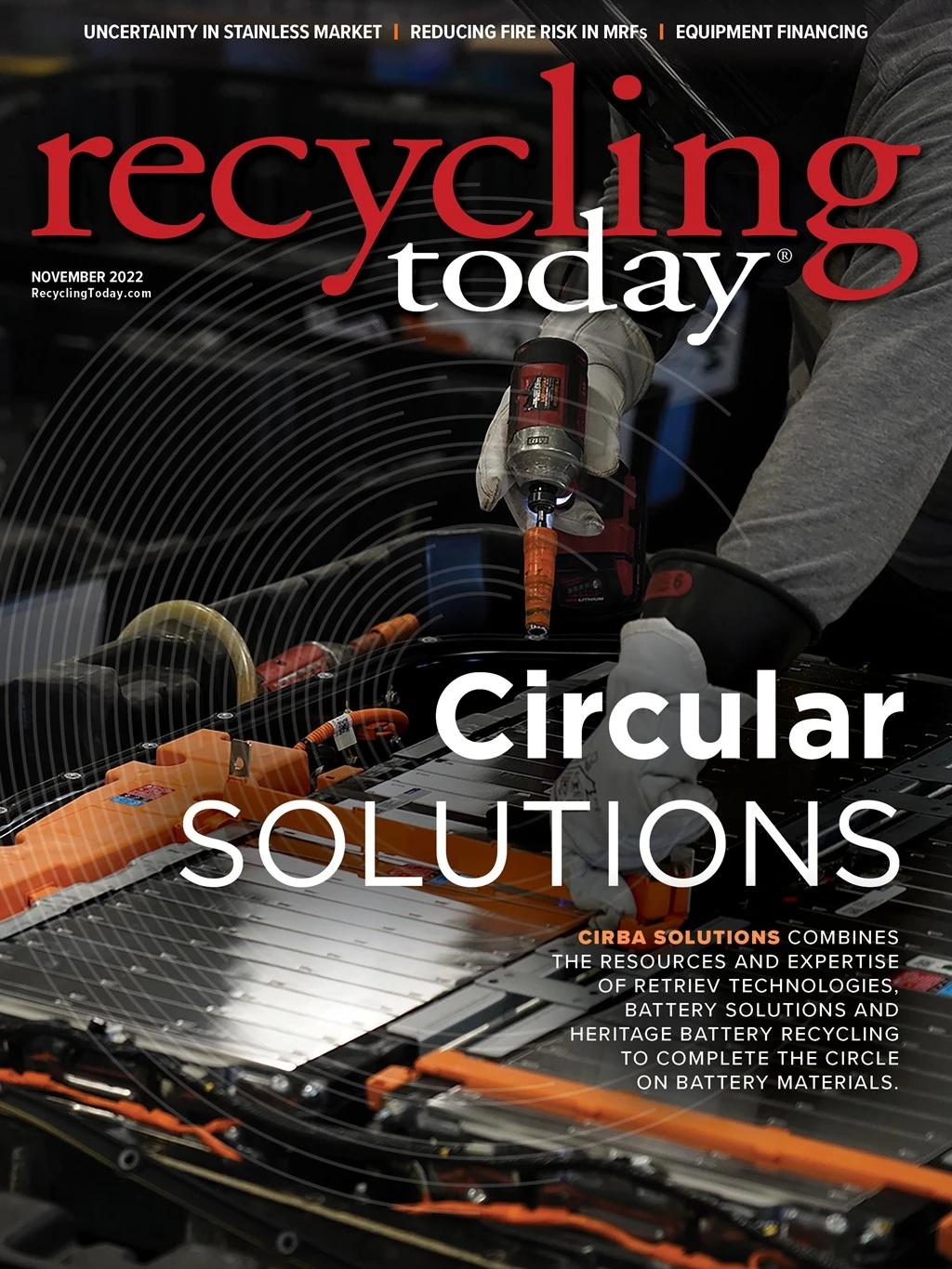Late this summer, the Biden-Harris administration, through the U.S. Department of Energy (DOE), issued a request for information (RFI) to help guide the implementation of $335 million in investments for lithium-ion battery (LIB) recycling programs through the Infrastructure Investment and Jobs Act, otherwise known as the bipartisan infrastructure law. The DOE says batteries are critical to powering clean-energy technologies.
“Battery recycling doesn’t just remove harmful waste from our environment, it also strengthens domestic manufacturing by placing used materials back into the supply chain,” Secretary of Energy Jennifer M. Granholm said at the time the RFI was issued. “The bipartisan infrastructure law is making big investments in our clean energy and transportation future, and securing our supply chain here at home will allow more Americans to benefit from the many clean technologies powered by lithium batteries.”
As of mid-October, we began to see the first of these investments in the form of grants to companies that are adding capacity to recycle LIBs in the United States.
“Cirba Solutions has received approximately $75 million in federal funds to expand its LIB processing facility in Lancaster, Ohio.”
Among the companies receiving grants is Cirba Solutions, the subject of this month’s cover story, “Circular solutions." The company has received approximately $75 million in federal funds to expand its LIB processing facility in Lancaster, Ohio.
Ascend Elements also has received funding from the DOE. That company recently broke ground on a facility in Hopkinsville, Kentucky, that it says will be the largest electric vehicle (EV) battery recycling and engineered materials manufacturing facility in the United States.
As Cirba Solutions President and CEO David Klanecky says, “The funds from the bipartisan infrastructure law will help strengthen the United States domestic lithium-ion battery supply chain for the EV market and create a sustainable supply of the critical minerals used to make batteries.”
I’ll be among those watching with interest as this segment of the recycling industry further develops. Keeping the valuable materials that are essential to the green energy transition in circulation within the U.S. is important to the domestic supply chain and to the environment.
Get curated news on YOUR industry.
Enter your email to receive our newsletters.

Explore the November 2022 Issue
Check out more from this issue and find your next story to read.
Latest from Recycling Today
- Call2Recycle Canada launches program in Alberta
- The history of SAS Forks: Celebrating 50 years
- SAS Forks partners with NED at Green Recycling in Houston, Texas
- DRKhorse’s RCC series at Gorick Construction in Endicott, New York
- Balar Equipment to operate under Enviro-Clean Equipment name
- Li-Cycle reports 2024 financials
- Wisconsin Aluminum Foundry acquires Anderson Global
- PureCycle, Landbell Group working to advance PP recycling in Europe






